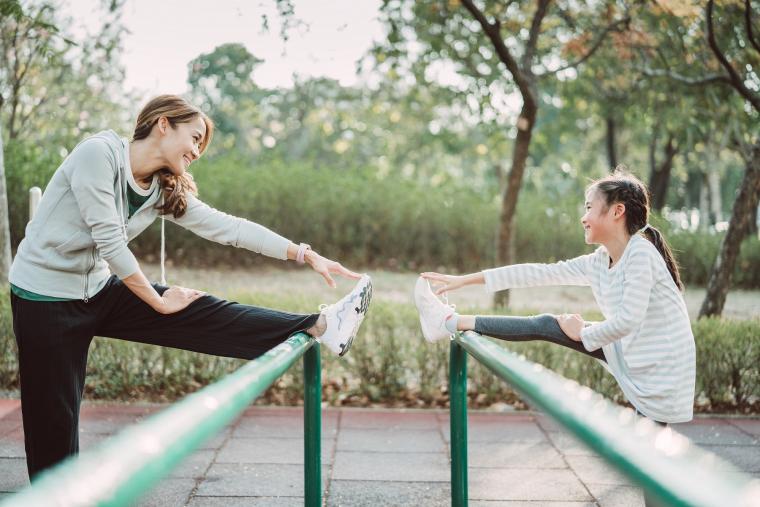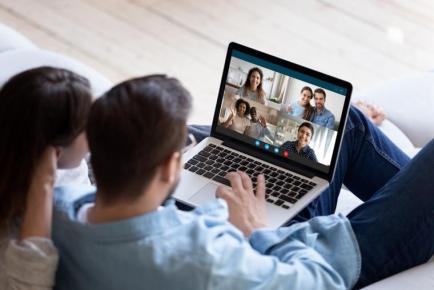- Managing your Practice
-
- Your Benefits
-

Introducing the ultimate Club MD experience
From work to play, and everything in between, we provide you with access to hundreds of deals from recognizable, best-in-class brands, elevating every facet of your life – from practice supports to entertainment, restaurants, electronics, travel, health and wellness, and more. Your Club MD membership ensures that these deals are exclusive to you, eliminating the need to search or negotiate.
Welcome to the ultimate Club MD experience. Your membership, your choices, your journey.
-
- Advocacy & Policy
-
- Collaboration
- News & Events
-

Stay Informed
Stay up to date with important information that impacts the profession and your practice. Doctors of BC provides a range of newsletters that target areas of interest to you.
Subscribe to the President's Letter
Subscribe to Newsletters
-
- About Us
-

COVID-19: Staying connected and living with uncertainty as we move into fall
September 16, 2020
Together for Health
The COVID-19 pandemic has created a new way of living that many of us are still becoming accustomed to. We have had to change how we work, how we shop for groceries, and how we socialize with friends.
Over the summer in BC, the warm weather allowed us to meet in safe, physically-distanced groups, and designated ‘bubbles’, for vacations, park barbecues, and celebrations. With government now urging British Columbians to pare back their social interactions, some of us will be feeling worried about becoming more isolated during the darker days of Fall and Winter.
Earlier in the year, we shared some tips about managing your mental health during the pandemic – now, as we continue to live with COVID-19, other concerns are arising. The uncertainty surrounding the pandemic and its duration is contributing to many people’s anxious feelings. Struggles with financial hardship, self-isolating, or general unease about what the future might look like can cause stress, worry, and even feelings of panic. Some people are worried about the impact of a physically-distant winter on their mental health. Seasonal Affective Disorder can also come into play as the days get shorter, but there are ways to manage, and take care of yourself.

How do I stay connected during the pandemic?
What to do in self-isolation
If you have to self-isolate after being contacted by public health, after travelling, or are continuing to keep your bubble small due to being immunocompromised, there are some things you can do to take care of your mental well-being. First, make sure you have a self-isolation plan – this will help clear your head. Keep an eye out for signs of anxiety, such as feeling hypervigilant about threats or physical symptoms, feeling more tension in your body, and difficulty sleeping.
Reach out to others
You might feel like you are alone during this time, but rest assured many people you know likely feel the same way. Reach out to friends and family on Zoom, FaceTime, by telephone, or even send an email – maintaining existing connections is key. Watch a movie with friends and family at the same time, or go on a virtual tour of a museum or a gallery.
Get active
Research shows that regular exercise makes you less reactive to stressful situations, boosting your ability to cope. Working out also improves your quality of sleep, it releases endorphins, and gives you a chance to focus on your body in a positive way. Stay away from team sports, but other than that It doesn't matter what type of exercise you do - whether it's yoga, Pilates, or cardio - the most important thing is moving your body.
Set up a routine
Try to establish a routine if you are self-isolating or spending a lot of time at home. If you are working from home, try to create a designated workspace, so that when you switch off, your mind can disengage. Maintaining a solid sleep schedule will also help with anxiety – try to avoid digital devices last thing at night, or first thing in the morning.
How do I manage uncertainty?
Limit your media consumption
For lots of people, the pandemic is causing anxiety because of the lack of control they have over the situation. Try to create a news routine, and stick to it. Scrolling through social media and news until late in the evening can exacerbate existing anxiety. If you do want to stay informed, limit your news intake to perhaps a certain time each day, and make sure the news resources you use are reliable.
Keep up good hygiene habits
While we cannot have total certainty when it comes to COVID-19, there are simple things we can do to reduce our chances of contracting the virus. Washing your hands for 20 seconds with warm water and soap regularly is an important step. You can find out the correct technique on the BCCDC website. Viruses can also enter our bodies through our eyes, nose, and mouth, so try not to touch your face.
Focus on a new hobby
If you find yourself overwhelmed about the virus and its global effects, try to channel that energy into a new hobby. Maybe you have a set of paints that you have not used lying around, or want to brush up on another language for when you can travel again. By focusing on something fun or creative, you can reduce feelings of worry and feel accomplished.
Reach out to a health professional
It’s important to remember that your family physician is still here for you at this time. Even if you are armed with a toolbox of coping mechanisms, it can still sometimes feel too much. Discussing your feelings about your mental health via a virtual or telephone appointment can be enormously beneficial. Your family doctor can refer you to the right healthcare professional, depending on your unique needs. There are also a variety of free mental health resources you can access.
Resources:
OpenMindBC.ca(link is external) – developed by Doctors of BC, this website acts as a portal to an abundance of tools and resources developed by a range of mental health organizations in BC and across Canada.
Reaching Out: Supporting Youth Mental Health in British Columbia – this policy paper contains a number of commitments and recommendations which support Doctors of BC’s policy of raising awareness of mental illness in the province.
Physician Health Program of British Columbia– PHP is an operationally independent service funded by Doctors of BC and the Ministry of Health. Their services support all BC physicians, medical students, and residents, as well as their partners and dependent children.
Mental Health Commission of Canada – The MHCC has a wide range of tools aimed at improving the mental well-being of all people living in Canada.
HereToHelp BC – A project of the BC Partners for Mental Health and Substance Use Information, HereToHelp provides information about mental health and substance abuse.
Canadian Mental Health Association – The CMHA British Columbia Division has a number of resources, including information on youth mental health, university workshop information, and crisis care support.




